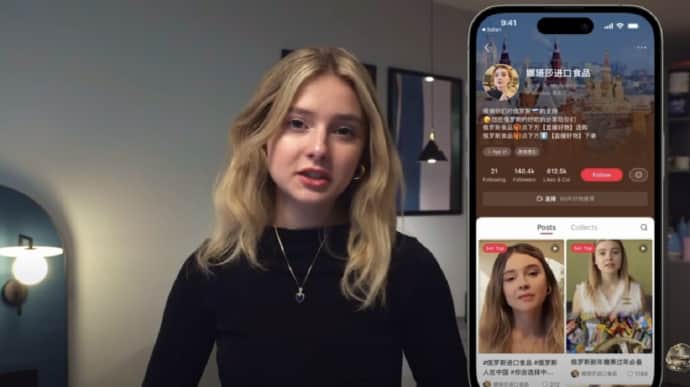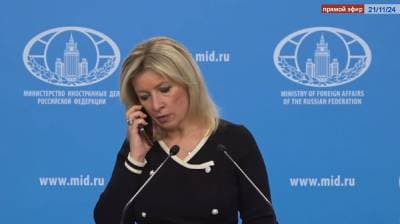China creates clone of Ukrainian blogger selling Russian goods

Stolen and modified online images are being used to create avatars that speak Chinese and promote love for China.
Source: Voice of America
Details: Real-life women are recognising themselves in these videos. One of them was 20-year-old Ukrainian Olha Loiek, who is studying cognitive sciences at the University of Pennsylvania. A few months ago, Loiek created a YouTube channel where she talks about mental health and shares her philosophical views on life.
However, she started receiving messages from followers who said they had seen her on Chinese social media.
There she is not Olha Loiek, but a Russian woman who speaks Chinese, loves China and wants to marry a Chinese man. Her name is Natasha, or Anna, or Grace, depending on the social media platform in China.
Quote: "I started translating the videos using Google Translate and realised that most of these accounts talk about things like China and Russia and the good relations between China and Russia. It's very offensive."
More details: In some videos, the avatars talk about how much they value the close ties between Russia and China. Other videos praise Chinese history and culture or talk about how much Russian women want to marry a Chinese man: "If you marry Russian women, we will do the laundry, cook and wash the dishes every day," the woman in the video says. "We will also give you as many foreign children as you want."
The Douyin and Bilibili video sites feature several dozen videos showing Loiek's avatar speaking Chinese. Most of these accounts invite viewers to visit online stores to buy what they say are authentic Russian products.
Douyin, the Chinese version of TikTok, has marked some of these videos as potentially AI-generated. However, the comments show that many people believe they are looking at a real woman. One user wrote: "Russian beauty, the Chinese welcome you."
On Bilibili, China's largest video site, some AI videos that use Loiek's face are marked with the HeyGen logo, indicating that the video was created on the company's website. In one video from Bilibili, the demonstrator even shows how to make a short video on HeyGen with a clip of Loiek talking.
HeyGen is an artificial intelligence company headquartered in Los Angeles that has operated in China since 2020. It specialises in realistic digital avatars, voice generation, and video translation. According to Forbes, the company is currently valued at US$75 million.
HeyGen's moderation policy states that users cannot create avatars that "depict real people, including celebrities or public figures, without explicit consent."
Loiek said that after she and her YouTube followers sent complaints to Chinese social media companies, about a dozen accounts that imitated her were deleted.
Reporters contacted HeyGen and Douyin's parent company, ByteDance, for comment, but received no response.
In early 2023, the Chinese government introduced regulations to regulate deepfakes and other "deep synthesis services".
The law prohibits creating deepfakes without the consent of the people whose image or other information is used. Loiek posted her story on YouTube, which was shared on Chinese social media. Users on various platforms sympathised with her and called for stricter rules regarding AI.
Support UP or become our patron!





